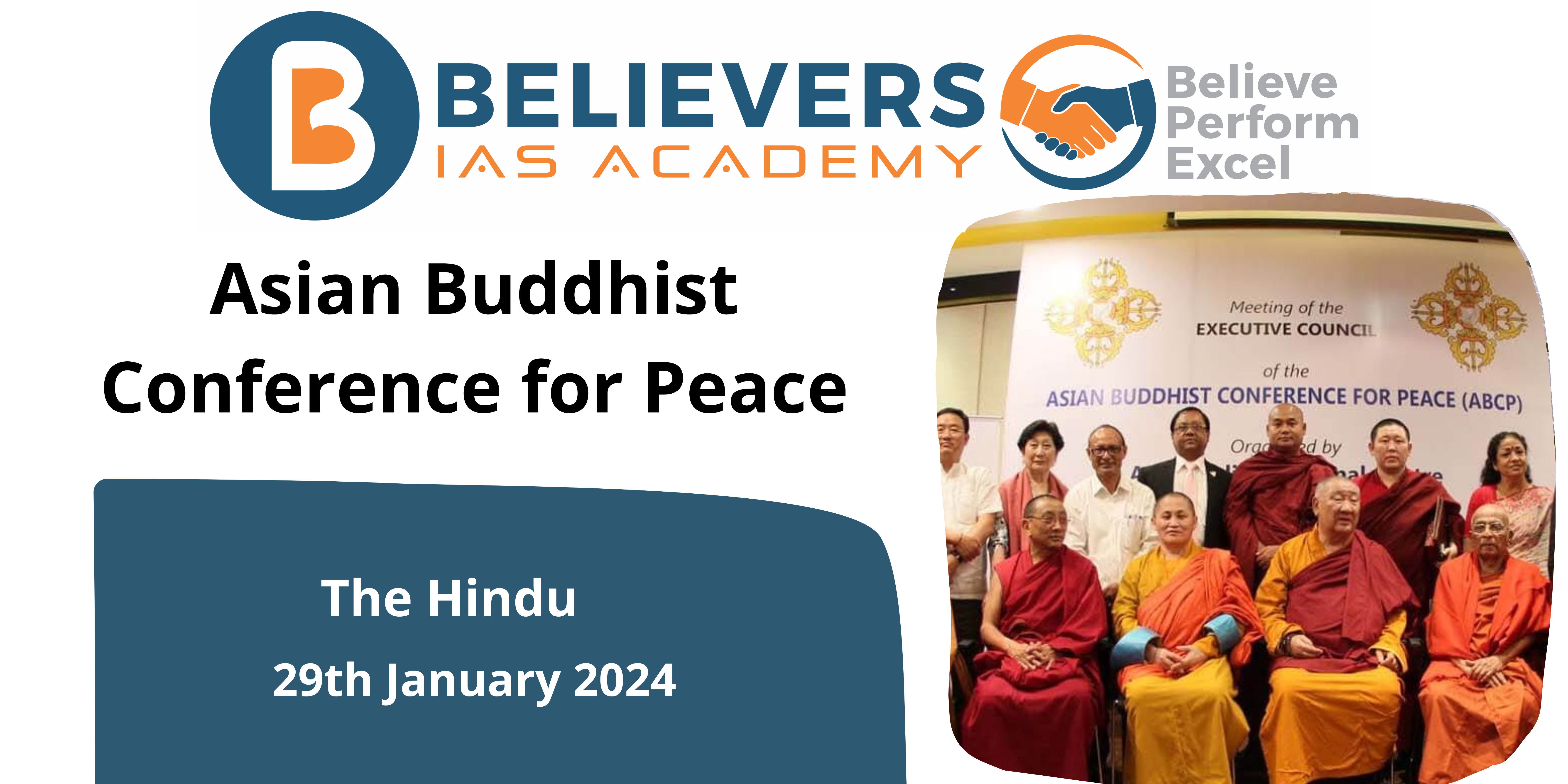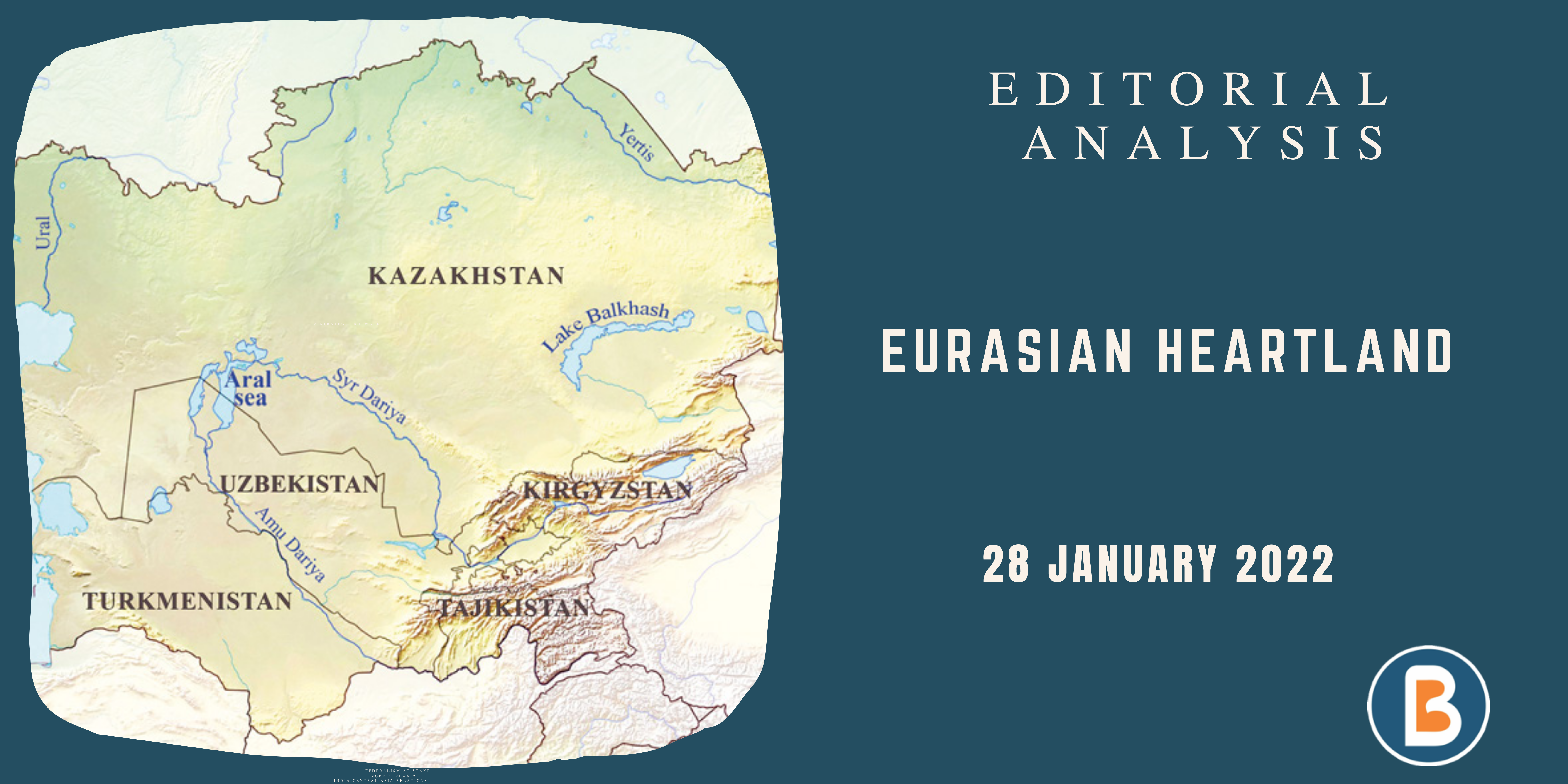Asian Buddhist Conference for Peace
Context:
Recently, the Asian Buddhist Conference for Peace (ABCP), Buddhists Mass Movements in Asia convened its 12th General Assembly in New Delhi.
Relevance:
GS-01 GS-04 (Indian Heritage Sites, Ethics)
Key Highlights:
- Theme: The overarching theme of the 12th General Assembly of ABCP was “ABCP – The Buddhist Voice of Global South,” aligning with India’s commitment showcased during its G20 presidency and the Voice of Global South Summit.
- India’s Dedication to Buddha’s Legacy: The assembly spotlighted India’s position as a nation deeply rooted in the principles of Buddha. Notably, it acknowledged India’s proactive role in developing the Buddhist circuit and its efforts in establishing the India International Centre for Buddhist Culture.
- Constitutional Recognition of Buddha’s Impact: A significant emphasis was placed on the constitutional acknowledgment of Lord Buddha’s influence. The artwork of the Indian Constitution, specifically in Part V pertaining to Union governance, prominently features Lord Buddha, symbolizing his enduring impact.
Asian Buddhist Conference for Peace:
- The ABCP, a voluntary movement comprising followers of Buddhism, includes both monastic (monks) and lay members.
- Established in 1970 with its headquarters in Ulaanbaatar, Mongolia, the conference was jointly founded by Nomch Mergen Khamba Lama Gabju S. Gombojav, Abbot of Gandan Tegchenling Monastery; Bandida Khamba Lama Gomboev from Buryatia, Russia; and Kushok Bakula Rinpoche from India.
- Additionally, religious leaders from Sri Lanka and Nepal played a significant role.
- Operating in alignment with the teachings of Buddha, the ABCP is dedicated to advancing global peace and security.
- Recognized by the UN under the ECOSOC, its objectives include uniting Buddhists to support universal peace, fostering economic and social progress, promoting justice and human dignity, and preserving and disseminating the rich cultural heritage of Buddhism.




